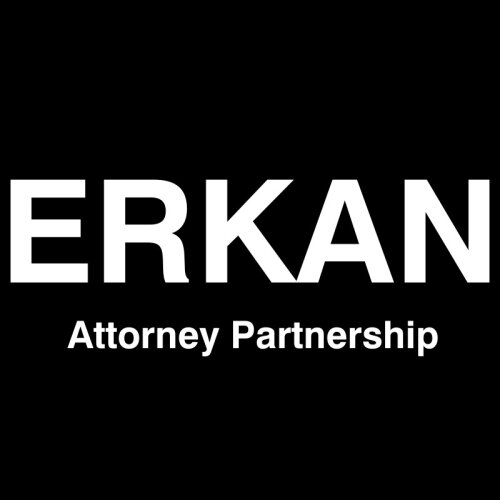Best Employment Rights Lawyers in Ankara
Share your needs with us, get contacted by law firms.
Free. Takes 2 min.
List of the best lawyers in Ankara, Turkey
Turkey Employment Rights Legal Articles
Browse our 1 legal article about Employment Rights in Turkey written by expert lawyers.
- Workplace Accidents in Turkey: Protecting Your Business and Your Employees
- Turkey has one of the highest rates of workplace accidents globally, with nearly 2,000 work-related fatalities reported in 2024 alone. Workplace safety is not just a legal obligation; it's a critical factor in the success and sustainability of your business. As a business owner, understanding the legal framework, financial implications,... Read more →
About Employment Rights Law in Ankara, Turkey
Employment Rights Law in Ankara, Turkey governs the rights and obligations of employees and employers in the workplace. It ensures fair treatment, non-discrimination, and protection of workers' rights. Understanding these laws is crucial for both employers and employees to create a harmonious and lawful working environment.
Why You May Need a Lawyer
There are several situations where you may require legal help in Employment Rights in Ankara, Turkey:
- If you believe you have been wrongfully terminated
- If you have faced workplace discrimination or harassment
- If your rights related to wages, work hours, annual leave, or overtime pay have been violated
- If you need assistance with negotiating employment contracts or severance agreements
- If you are facing any other employment-related legal issues
Local Laws Overview
Employment Rights in Ankara, Turkey are governed by several key laws:
- The Labor Law (No. 4857): This law sets out the general principles of employment, including the rights and obligations of both employees and employers.
- The Turkish Employment Agency (TEA) Law (No. 4904): This law regulates employment agencies, ensuring they operate within legal boundaries and protect the rights of job seekers and employees.
- The Occupational Health and Safety Law (No. 6331): This law aims to safeguard employees' health and safety in the workplace.
- The Law on Trade Unions and Collective Labor Agreements (No. 6356): This law protects workers' rights to unionize and negotiate collective labor agreements.
Frequently Asked Questions
1. What is the maximum working time allowed in Ankara, Turkey?
The maximum working time is 45 hours per week, including overtime, as stipulated by the Labor Law.
2. Can an employer terminate an employee without a valid reason?
No, according to the Labor Law, employers must have a valid reason, such as misconduct or incompetence, to terminate an employee. Unfair dismissal can be challenged legally.
3. Are employers required to provide paid annual leave?
Yes, employers are obligated to grant employees paid annual leave. The duration of leave depends on the length of employment.
4. What remedies are available if I experience workplace discrimination?
If you experience workplace discrimination, you can file a complaint with the Ministry of Family, Labor, and Social Services. They will investigate the matter and take appropriate action.
5. Can employees join a labor union?
Yes, employees have the right to join labor unions and engage in collective bargaining for better working conditions and benefits.
Additional Resources
For further information and legal advice, you can consult the following resources:
- Ministry of Family, Labor, and Social Services: https://www.ailevecalisma.gov.tr/
- Ankara Bar Association: https://www.ankarabarosu.org.tr
- Turkish Employment Agency: https://www.iskur.gov.tr
Next Steps
If you require legal assistance in Employment Rights in Ankara, Turkey, consider taking the following steps:
- Gather any relevant documentation or evidence related to your case.
- Research and consult reputable legal professionals who specialize in employment law.
- Arrange a consultation to discuss your case and obtain legal advice.
- Work with your chosen lawyer to develop a strategy and take appropriate legal action if necessary.
- Maintain open communication with your lawyer throughout the process and follow their guidance.
Lawzana helps you find the best lawyers and law firms in Ankara through a curated and pre-screened list of qualified legal professionals. Our platform offers rankings and detailed profiles of attorneys and law firms, allowing you to compare based on practice areas, including Employment Rights, experience, and client feedback.
Each profile includes a description of the firm's areas of practice, client reviews, team members and partners, year of establishment, spoken languages, office locations, contact information, social media presence, and any published articles or resources. Most firms on our platform speak English and are experienced in both local and international legal matters.
Get a quote from top-rated law firms in Ankara, Turkey — quickly, securely, and without unnecessary hassle.
Disclaimer:
The information provided on this page is for general informational purposes only and does not constitute legal advice. While we strive to ensure the accuracy and relevance of the content, legal information may change over time, and interpretations of the law can vary. You should always consult with a qualified legal professional for advice specific to your situation.
We disclaim all liability for actions taken or not taken based on the content of this page. If you believe any information is incorrect or outdated, please contact us, and we will review and update it where appropriate.















